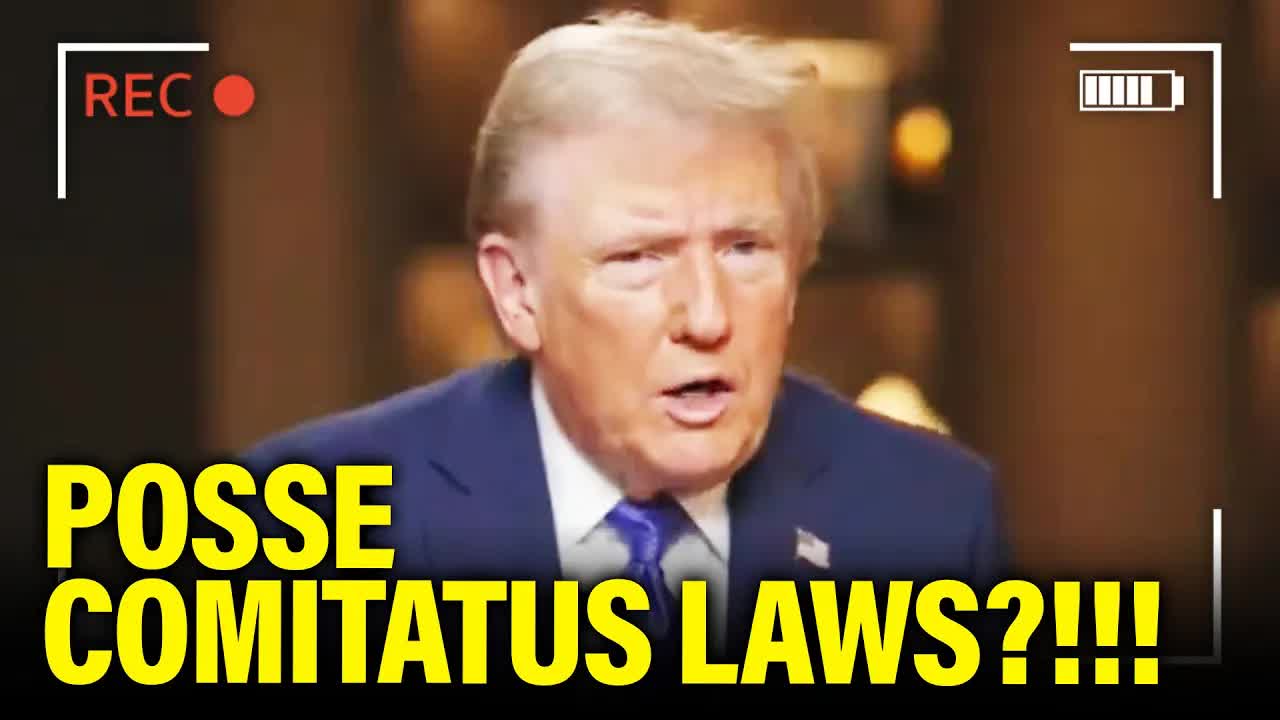As the nation gears up for another election day, the political landscape is charged with tension and uncertainty.
Recent comments from former President Donald Trump have raised eyebrows and sparked concerns about potential chaos at the polls, particularly regarding the use of military force against American citizens.
In a recent interview, Trump expressed skepticism about the prospect of a peaceful election day, suggesting that external agitators could spark violence.
He pointed to a significant number of immigrants in the country, including individuals on terrorist watch lists and those with criminal backgrounds.
His rhetoric raises questions about what he perceives as threats to the electoral process and whether he believes these threats justify extreme measures.
President Biden has echoed concerns about the potential for unrest on election day, but Trump seems to dismiss these worries, arguing that they stem from a lack of understanding about rural America.
He claims the real danger lies within the country itself, labeling certain political opponents as “radical left lunatics” and suggesting that they pose a greater threat to national stability than any external forces.
The implications of Trump’s statements are alarming.
He hinted at the possibility of mobilizing the National Guard or even the military to quell dissent among American citizens he deems problematic.
This assertion raises serious legal and ethical questions about the role of the military in domestic affairs and the potential violation of the Posse Comitatus Act, which restricts the use of federal troops against civilians.
Critics argue that Trump’s comments reflect a dangerous mindset, where he views fellow Americans—particularly political adversaries—as enemies.
His reference to Democratic Congressman Adam Schiff as an example of this so-called “enemy within” underscores a chilling sentiment that could lead to authoritarian measures if he were to reclaim power.
The discourse surrounding Trump’s intentions has intensified, with some experts warning that his rhetoric echoes historical precedents of authoritarianism.
The mention of internment camps and the Alien Enemies Act, which has only been invoked during wartime, suggests a willingness to suspend constitutional rights in the name of national security.
Trump’s fixation on declaring a war against perceived internal threats raises the specter of martial law and the suspension of civil liberties.
His previous attempts to undermine democratic processes and his flirtation with using military force against dissenters have left many questioning the resilience of American democracy should he return to power.
Moreover, the normalization of such extreme rhetoric among Trump’s supporters poses a significant risk.
Many voters may underestimate the seriousness of his statements, viewing them as mere bluster rather than a genuine threat to democratic principles.
This complacency could embolden Trump and his allies to pursue increasingly authoritarian tactics.
As the election approaches, the lines between political discourse and potential violence blur.
The fear that Trump’s administration could resort to military action against its own citizens is not just a hypothetical scenario; it reflects a growing concern about the state of democracy in the United States.
The ramifications of Trump’s rhetoric extend beyond the immediate election cycle.
Should he regain power, the legal frameworks designed to protect civil liberties may be tested in unprecedented ways.
The potential for the misuse of laws like the Insurrection Act and the Alien Enemies Act looms large, prompting urgent discussions about safeguarding democracy.
In light of these developments, it’s crucial for citizens to remain vigilant and informed.
Engaging in discussions about the implications of such rhetoric and advocating for the preservation of democratic norms is essential as the nation navigates this turbulent political landscape.
The stakes are high, and the future of American democracy hangs in the balance.































